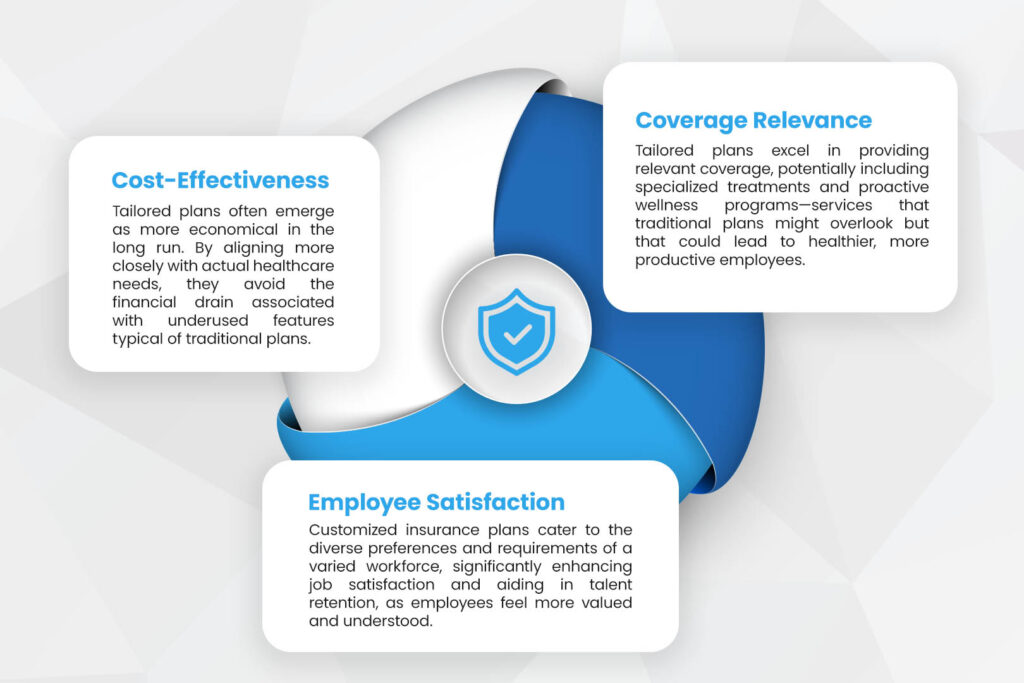Tailored Group Health Plans vs. Traditional Group Health Plans
A Revolutionary Approach for Modern Businesses

In today’s fiercely competitive business landscape, the value of health insurance cannot be overstated—especially for small business owners, their employees, and self-employed workers. As businesses strive to enhance employee well-being and company success, the choice between traditional and tailored group health plans becomes crucial. This blog delves into the nuances of these options, setting the stage for a transformative comparison that could redefine your approach to employee benefits.
What Are Traditional Group Health Plans?
Traditional group health plans are often seen as the bedrock of employee benefits. Characterized by standardized offerings, these plans typically include fixed premiums, standard deductibles, and one-size-fits-all coverage options. While they provide essential health coverage, their rigidity can sometimes leave specific employee needs unmet, leading to wasted resources on underutilized services.
What Are Tailored Group Health Plans?
In contrast, tailored group health plans represent a paradigm shift—custom-designed solutions that mold to the unique contours of a business and its workforce. These plans offer unparalleled flexibility in coverage options, potentially lowering costs by eliminating unnecessary coverages and focusing resources on services that employees really use and value. This bespoke approach aligns benefits with both employee needs and overarching business goals, crafting a harmonious balance that traditional plans often lack.
Let’s do some Comparative Analysis:

Case Studies or Hypothetical Scenarios
Imagine a tech startup that switched to a tailored health plan catering specifically to its young, health-conscious employees. By focusing on preventative care, mental health, and wellness programs, the startup not only saw a 25% increase in employee satisfaction but also a 20% decrease in sick days.
Conversely, a traditional manufacturing company adhered to a conventional health plan with broad, unspecified coverage. Despite high premiums, the plan underperformed in addressing specific health issues prevalent in the workforce, such as ergonomic injuries, leading to higher absenteeism and lower productivity.
Choosing the Right Plan for Your Business
Deciding between traditional and tailored group health plans requires a deep understanding of your business’s specific needs. Consider factors like company size, the diversity of employee health needs, budget constraints, and long-term objectives. A thorough assessment can reveal which type of plan will truly drive your business forward.
The comparison between traditional and tailored group health plans reveals a clear trajectory: tailored plans offer modern businesses a more strategic, efficient, and satisfying approach to employee health benefits. By focusing on flexibility and custom solutions, these plans meet the dynamic needs of today’s workforce and pave the way for enhanced business success.
Is your business ready to embrace a health plan that truly fits? Contact Harbor Group USA today to discover how our tailored health plans can revolutionize your approach to employee benefits. Let us help you build a healthier, happier, and more productive workplace.
Read More - Why is a comprehensive Health Plan your financial ally Published on: Apr 18, 2024

One Response